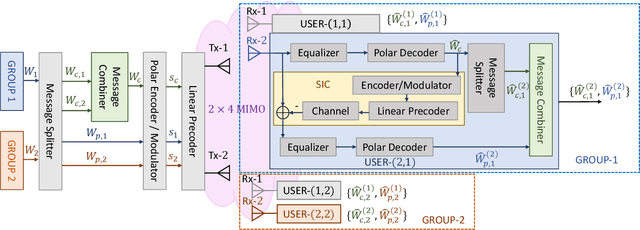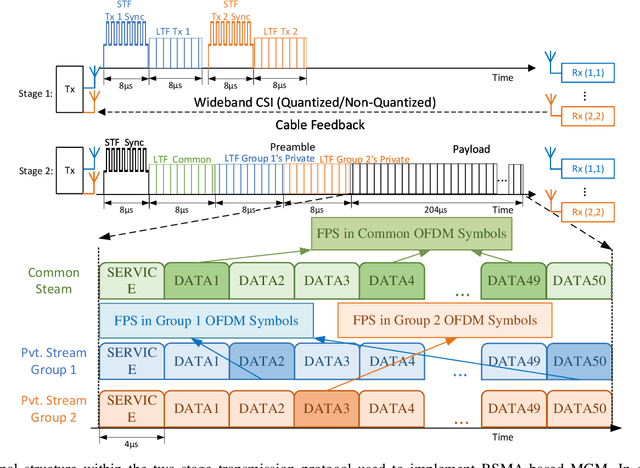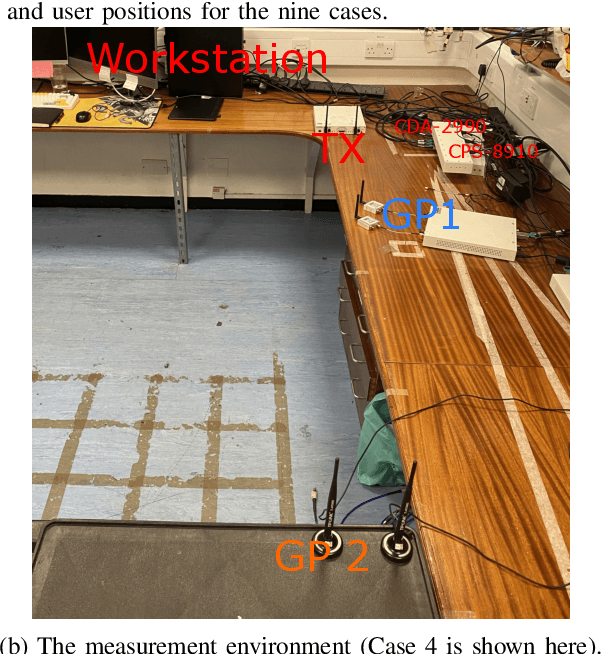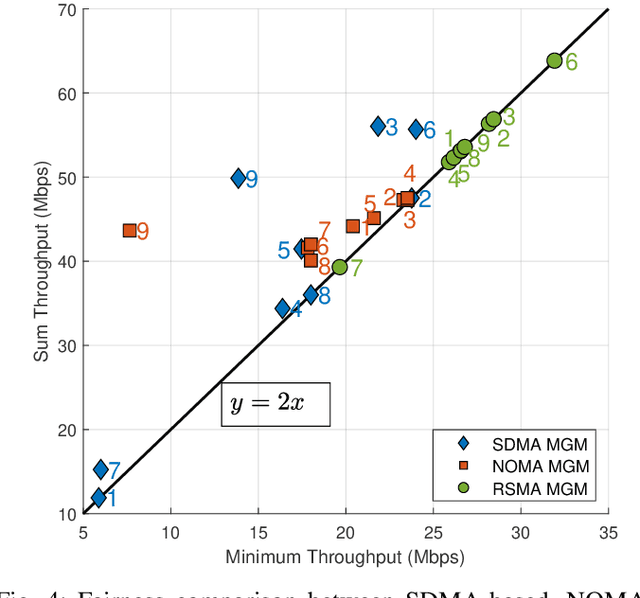Rate-Splitting Multiple Access for Overloaded Multi-group Multicast: A First Experimental Study
Paper and Code
Jun 21, 2024



Multi-group multicast (MGM) is an increasingly important form of multi-user wireless communications with several potential applications, such as video streaming, federated learning, safety-critical vehicular communications, etc. Rate-Splitting Multiple Access (RSMA) is a powerful interference management technique that can, in principle, achieve higher data rates and greater fairness for all types of multi-user wireless communications, including MGM. This paper presents the first-ever experimental evaluation of RSMA-based MGM, as well as the first-ever three-way comparison of RSMA-based, Space Divison Multiple Access (SDMA)-based and Non-Orthogonal Multiple Access (NOMA)-based MGM. Using a measurement setup involving a two-antenna transmitter and two groups of two single-antenna users per group, we consider the problem of realizing throughput (max-min) fairness across groups for each of three multiple access schemes, over nine experimental cases in a line-of-sight environment capturing varying levels of pathloss difference and channel correlation across the groups. Over these cases, we observe that RSMA-based MGM achieves fairness at a higher throughput for each group than SDMA- and NOMA-based MGM. These findings validate RSMA-based MGM's promised gains from the theoretical literature.
 Add to Chrome
Add to Chrome Add to Firefox
Add to Firefox Add to Edge
Add to Edge